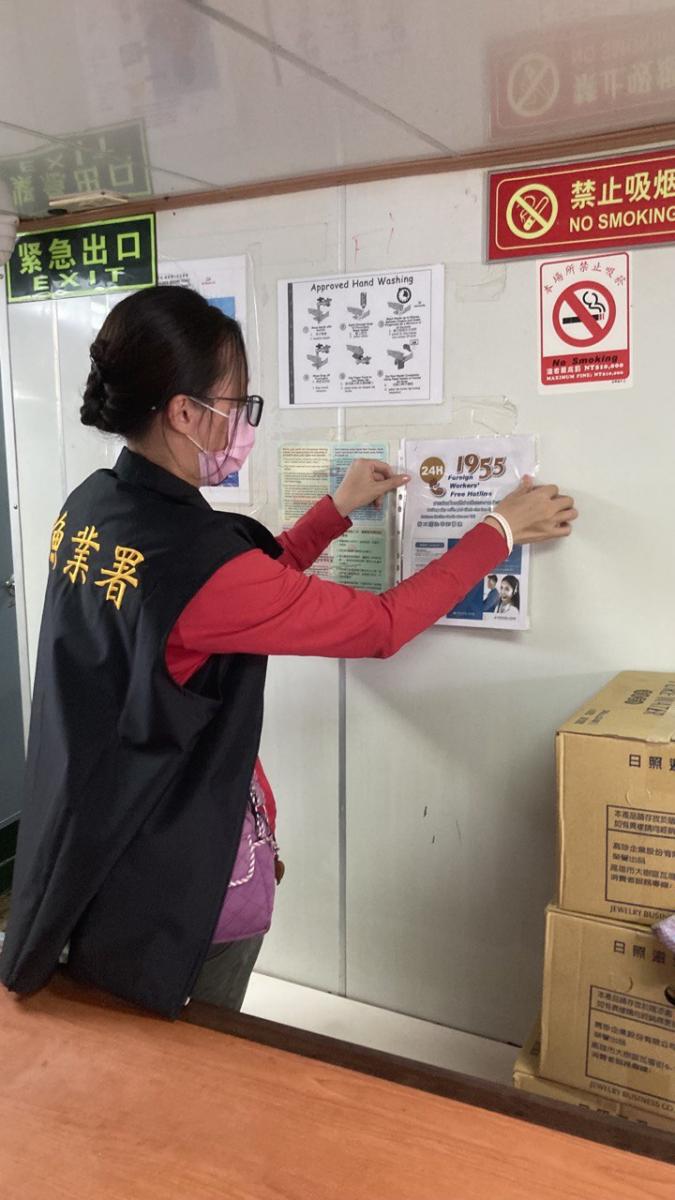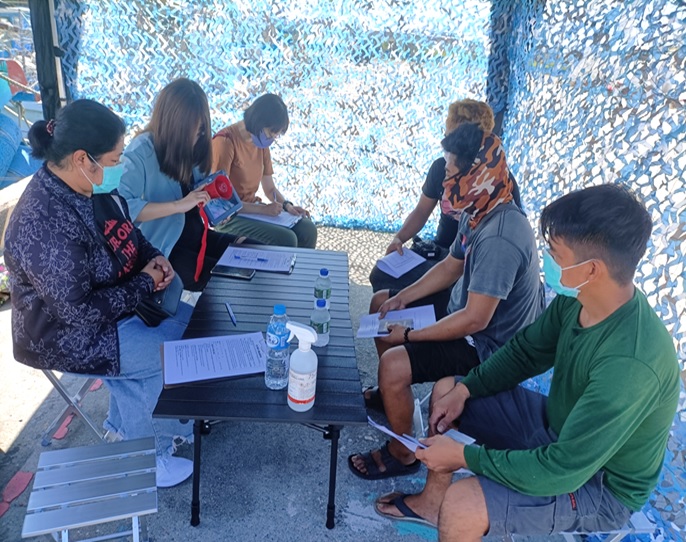The Fisheries Agency continues to improve fishery working conditions, crew rights and benefits, and strengthen the protection of fishery human rights in Taiwan
- Update
- 2022-10-03
- hit
- 7236
The Fisheries Agency said today that they were regret to notice that the Taiwanese distant-water fisheries products were still on the “List of Goods Produced by Child Labor or Forced Labor”, the latest update of which was released by the U.S. Department of Labor (DOL) on September 28, 2022, Eastern Time. However, the Fisheries Agency will continue working with relevant ministries to fully implement the "Action Plan of Fisheries and Human Rights". In addition, they will also work with the industries and private sectors to improve labor rights and benefits in Taiwanese distant-water fisheries. The Fisheries Agency expects the products of Taiwanese distant-water fisheries can be removed from the list as soon as possible, after the implementation of these reform measures.
The Fisheries Agency said the U.S. DOL believes that Taiwanese distant-water fisheries were involved in forced labor, and they therefore have put the relevant products on the list since 2020. In order to further improve the working conditions in Taiwanese distant-water fisheries and safeguard the rights and benefits of fishing crews, the Fisheries Agency had invited officials, scholars, researchers and civic groups to discuss specific actions and solutions on the working conditions, living conditions, social protection, supervising the agents, monitoring mechanisms, international cooperation, and mutual-beneficial partnerships in Taiwanese distant-water fisheries. The conclusions were aggregated into the "Action Plan of Fisheries and Human Rights", which was approved by the Executive Yuan in May of 2022. At the meantime, amendments were made to some working conditions in the "Regulations on the Authorization and Management of Overseas Employment of Foreign Crew Members", for example raising the minimum wage from US$450 to US$550 per month, requiring the specification of rest periods shall be in line with the ILO-C188 Convention, raising the life insurance coverage to NT$ 1.5 million, the full amount of salary shall be directly transferred to crew members’ accounts but not through a foreign agent, requiring a minimum coverage of health insurance of NT$ 300,000, and providing a channel for crew complaints.
The Fisheries Agency also mentioned that the operators of fishing vessels can clearly understand the working hours of crew members by using the attendance records. In addition, the operators should provide adequate drinking water and food according to the standard of the living care service plan and inflatable lifejackets for crews on deck to ensure their safety. Besides, the owners are supported to set up a CCTV system on the vessel to monitor the working conditions and protect the rights and benefits of migrant fishermen.
The Fisheries Agency said it paid its visit to the U.S. DOL in early September of this year to express Taiwan’s continuous efforts and future plans on improving the human rights in its distant water fisheries. The U.S. DOL appreciated Taiwan’s efforts and looked forward to some positive outcomes. The Fisheries Agency reiterated that, facing the expectations of the major international seafood consumer markets, they not only increase the capacity of law enforcement, but also continue working with industries and crew members groups to safeguard the labor rights of migrant fishermen as well as the sustainable development and global markets of Taiwanese distant-water fisheries.
Contact Person: Mr. Kuo-Ping Lin, Deputy Director-General of the Fisheries Agency of Taiwan
E-mail: kuoping@ms1.fa.gov.tw
Water dispenser (including water filter), air conditioner, Wi-Fi, Internet TV were installed on the fishing vessel, to improve the life on board.
The Fisheries Agency and the American Institute in Taiwan (AIT) held a symposium to discuss how to improve the labor rights of fishermen.
The Fisheries Agency’s inspector boarded the vessel to inspect and post the 1955 appeal leaflet.
The Fisheries Agency’s inspector interviewed the crew to understand the labor conditions.

%2C%20air%20conditioner%2C%20Wi-Fi%2C%20Internet%20TV%20were%20installed%20on%20the%20fishing%20vessel%2C%20to%20improve%20the%20life%20on%20board_.jpg)
%20held%20a%20symposium%20to%20discuss%20how%20to%20improve%20the%20labor%20rights%20of%20fishermen_.jpg)

